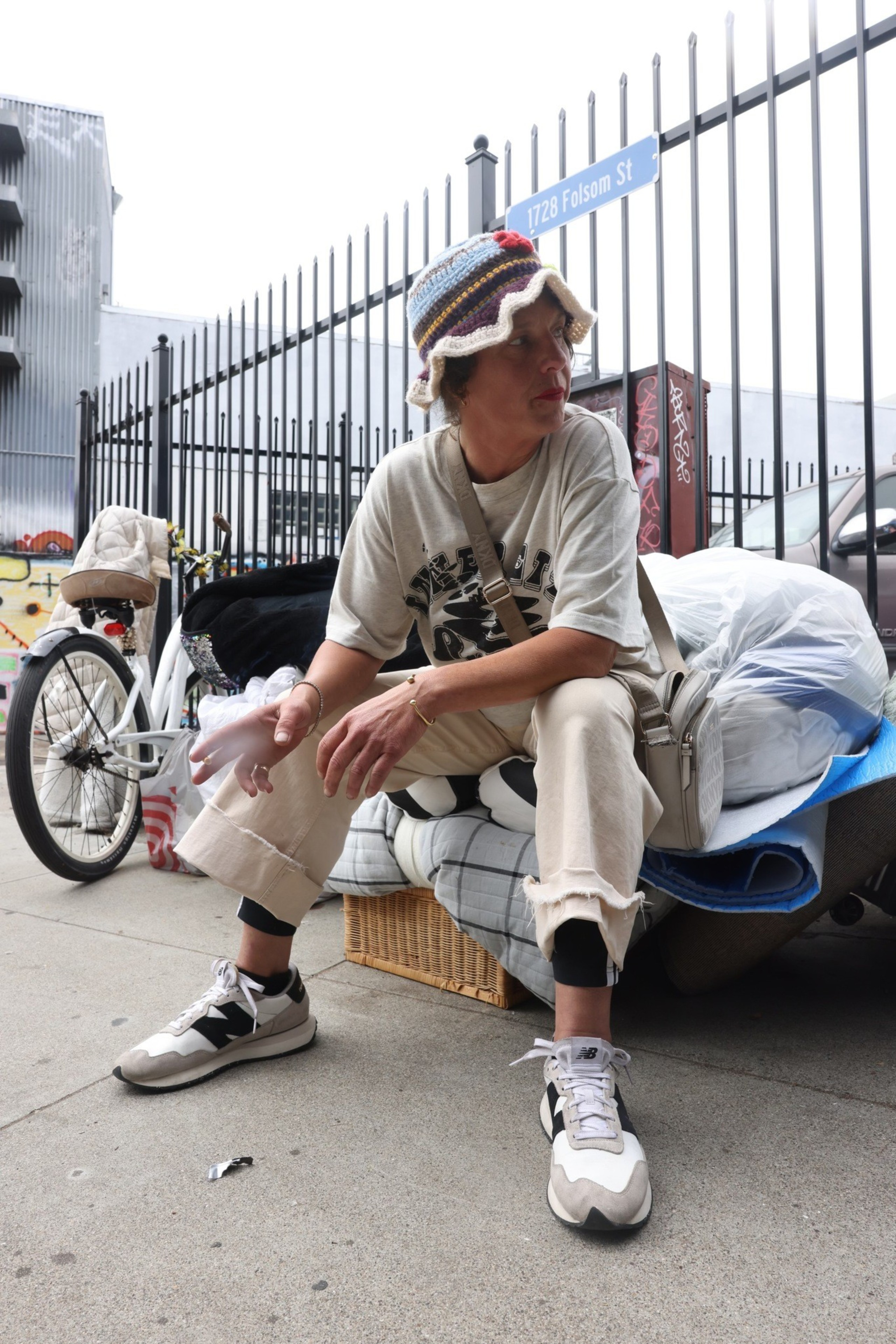“Very aggressive” homeless encampment sweeps, as recently touted by Mayor London Breed, began Tuesday morning in San Francisco following a major U.S. Supreme Court ruling.
The Standard witnessed aggressive enforcement action under the Central Freeway, carried out by police, the Department of Public Works, Department of Emergency Management, Homeless Outreach Team and San Francisco Fire Department.
Homeless people were not notified of the sweeps ahead of time, as has previously been the norm, according to a schedule of encampment clearings and a city official who was on the scene.
Tiffany Tannahill was watching over friends’ belongings when the sweep started on 13th Street. She said city workers showed up around 9:30 a.m.


Tannahill, who recently landed a homeless shelter bed, said she was given 15 minutes to gather all three of her friends’ belongings but was not allowed to disassemble and pack up the tent.
“One of the DPW workers started hollering past me, ‘I’m taking everything today,’ ” Tannahill said. “They were adamant that there wasn’t going to be enough time to pack up the tent.”
By 10:30 a.m., all city workers who were clearing the encampment had moved down the block, to the corner of 13th and Harrison streets.
Brandon Cunningham, the fire department’s incident commander at the scene of an encampment sweep near 13th and South Van Ness streets, told The Standard he was unsure whether people living at the site were notified beforehand. Tuesday’s schedule of encampment clearances, obtained by The Standard, does not list the location.


Cunningham said the Healthy Streets Operation Center, a multi-agency team that conducts encampment clearings, finished its scheduled morning operation early — so the team of officials decided to begin moving down 13th Street to continue clearing encampments.
“We’re trying to utilize the time that we had … instead of twiddling our thumbs for the next three hours,” Cunningham said. “We’re doing the general area.”
City staff have previously given notice to encampment occupants days before conducting a clearing.
In a video captured by The Standard, a police officer can be heard explaining to a person whose belongings have just been thrown onto a truck bed that encampments are “no more.”
“London Breed, the mayor, Gov. Gavin Newsom says no more on the streets, no more encampments. No more. This is what it’s come down to. This is our laws,” the officer said.
Max Gunn and Kara Sullivan, who have been homeless in San Francisco for roughly two years, told The Standard the city threw away some of their clothes. Gunn said members of the Homeless Outreach Team told him there were no shelter beds available.
“They got my clothes,” Sullivan said. “They laughed at me and did a mocking New York accent and acted like they were tough.”
A spokesperson for the Department of Emergency Management disputed the individual’s account, saying everyone was offered shelter during Tuesday’s action.
The actions taken by the city likely stem from a routine court procedure finalized Tuesday. At the beginning of the month, the Ninth Circuit Court of Appeals overturned a local injunction that limited how aggressive the city could be in its sweeps, part of a lawsuit filed in 2022 by the Coalition on Homelessness. The appeals court overturned the injunction as a direct result of the Supreme Court’s decision which allows cities more power to clear encampments. On Tuesday, the appeals officially modified the injunction to be in line with June’s SCOTUS ruling.
Nisha Kashyap, an attorney representing the Coalition on Homelessness in the suit against the city, called the sweeps “alarming” and “unacceptable.”
“The city’s conduct blatantly violates the existing injunction against property destruction and disregards its own laws and policies that mandate advance notice and the provision of shelter and services,” Kashyap said in a statement Tuesday. “By ignoring the injunction, the city is not only acting unlawfully but also stripping people of their basic survival necessities, making it harder for them to exit homelessness.”
A statement from the mayor’s office said the city’s “street response will consist of offers of services and support on a daily basis, targeted encampment resolutions, and coordinated efforts to prevent re-encampments and new areas from being encamped.”

In a memo shared Tuesday by the mayor’s office, officials said they seek to prevent encampments from cropping up again once they have been cleared.
The city said smaller encampment clearings would be addressed by police and Public Works, working in tandem.
“District [police] station officers will conduct regular canvases of the areas to identify any encampments, and then work with Public Works staff to clear the areas,” the memo reads.
The memo also outlines the consequences homeless individuals may face if they continue to camp on the city’s streets and refuse shelter. These penalties include citations and possible arrest.
“The goal is not punishment, it is compliance,” the memo reads.
